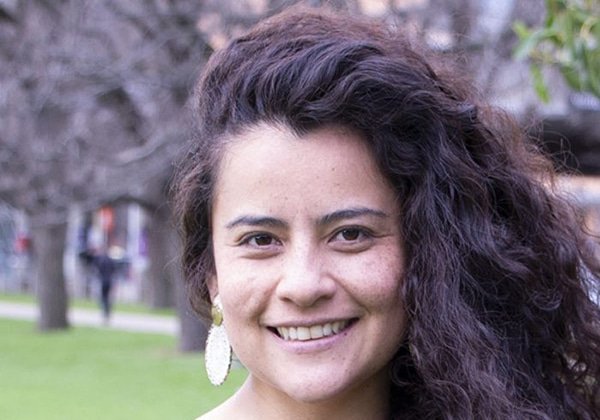Biography
Maria del Pilar Rojas Quimbay
Maria believes that education is the key for Human development and transformation. As a Public Administrator and a Second Language teacher she has worked at the Ministry of Education of Colombia and the Secretary of Education in Bogota as a pedagogical advisor. In 2019 she got a scholarship from the Colombian Government to study a Master’s degree in Education Leadership and Policy at Monash University. Maria now works as the Program Manager of Sun Books where she also trains teachers and students in Uganda.
Teachers and students as content creators. Literacy experience in Uganda with Sun Books.
Sun books project consists of pedagogical resources and training to foster reading and writing skills. A 10’ tablet device with a cover/protection case is used with all the content pre-loaded on the device. If required, a solar charger panel unit is provided to re-charge tablets. The tablet has the capacity to store approximately 300 e-books plus 300 other items of educational content for learners. Books published on our tablets contain stories of African communities that are culturally contextualized. Teachers and students as active participants of their own learning and teaching processes have been motivated for the creation of the content as well.
The acquisition of basic skills such as reading and writing has been considered an inalienable human right. Nevertheless, the persistence of illiteracy remains one of society’s greatest shortcomings. Illiteracy impacts 770 Million people around the globe and further 2 billion people struggle to read a sentence. 27% of the illiterate adults live in the sub-Sahara region. In Uganda, the Literacy rate among the population aged 15 years and older is 76.53.
Illiteracy limits the possibilities of the citizens to achieve his or her goals, to develop his or her knowledge and potential and to participate fully in the wider society (Unesco, 2004).
Literacy means the development of reading and writing skills but it also includes the knowledge and skills learners use to access, identify, understand, analyze, make meaning, express thoughts, and emotions, present ideas and opinions, evaluate printed and written (and visual) materials associated with varying contexts. The development of such skills is a challenge for ‘off the grid’ locations where there is limited or no internet connection and electricity, and few resources or enough training for teachers.
Sun books project consists of pedagogical resources and training to foster reading and writing. A 10’ tablet device with a cover/protection case is used with all the content pre-loaded on the device. If required, a solar charger panel unit is provided to re-charge tablets. The tablet has the capacity to store approximately 300 e-books plus 300 other items of educational content for learners. Books published on our tablets contain stories of African communities that are culturally contextualized. Teachers and students as active participants of their own learning and teaching processes have been motivated for the creation of the content as well.
Through the implementation of the program, we have encouraged learners to express their own stories and then to publish them on their e-library. An example of this experience took place in Gulu Primary school, with the P3 students the book written by Sofi Lakareber describes how boys and girls can do the same things.
More children are motivated to write and share their stories as stated by Collie, Martin, & Curwood (2015) motivation and engagement have been identified as key factors important for improving literacy outcomes. We found that writing motivation and engagement were underpinned by self-belief. According to Martin (2016), students’ belief and confidence in their writing tasks and in their ability to write and also in Valuing that refers to how much students believe that writing is useful, relevant, meaningful, and important.
On the other hand, teachers play a pivotal role in the development of literacy and motivation. Acknowledging the importance of relevant cultural content, teachers have developed some of the resources and activities that are part of the content on the tablets. We expect to empower them to broaden their role as teachers, not just focusing on teaching or reproducing concepts but being content critical developers.
Collie, R.J., Martin, A.J., & Curwood, J.S. (2015). Multidimensional motivation and engagement for writing. Educational Psychology. http://dx.doi.org/10.1080/01443410.2015.1093607
Martin, A.J. (2016). The Motivation and Engagement Scale. Sydney, Australia: Lifelong Achievement Group (www.lifelongachievement.com).
UNESCO Education Position Paper (2004) The plurality of literacy and the implications of its policies and programs, p.13. Accessed at http://unesdoc.unesco.org images/0013/001362/136246e.pdf

